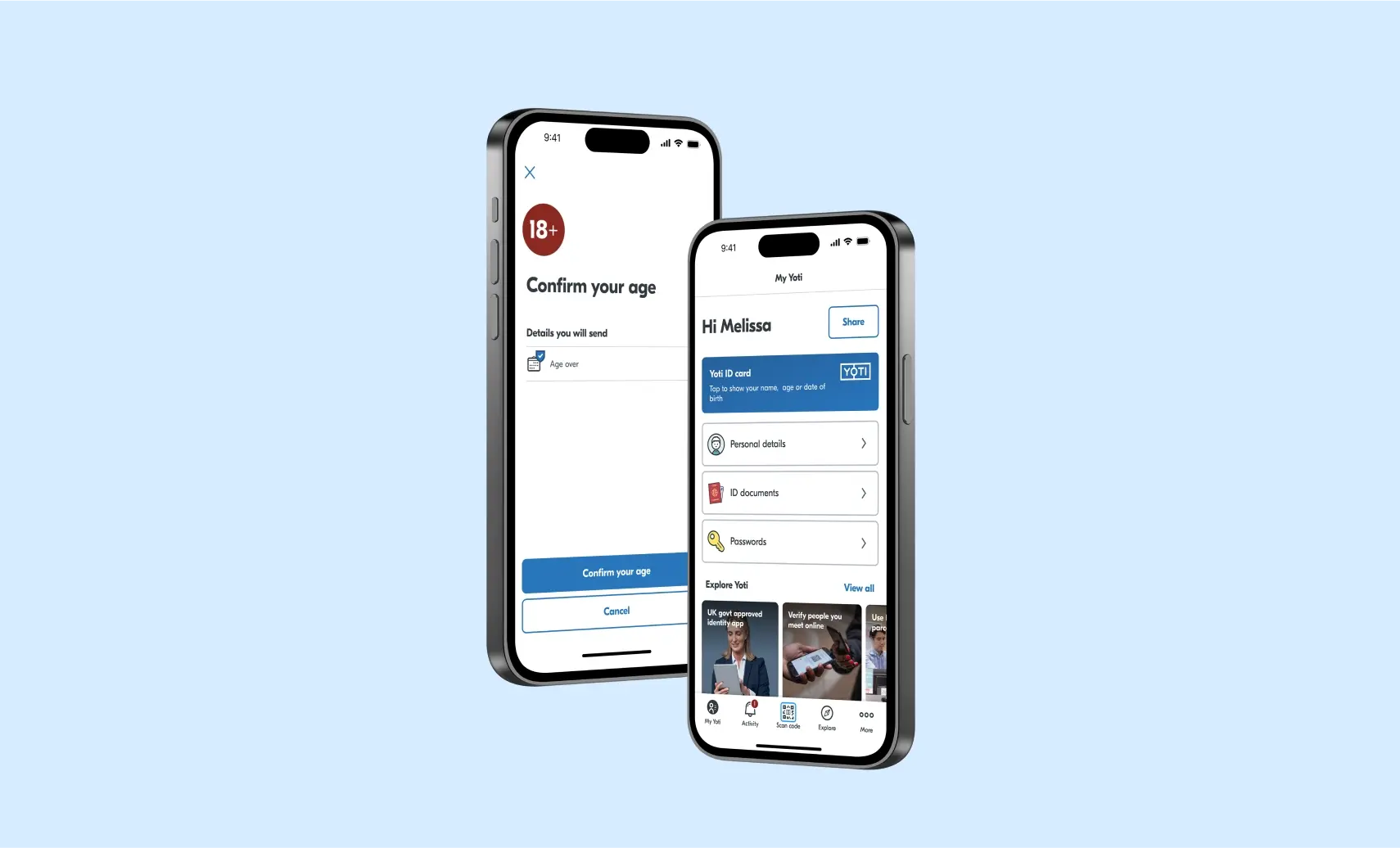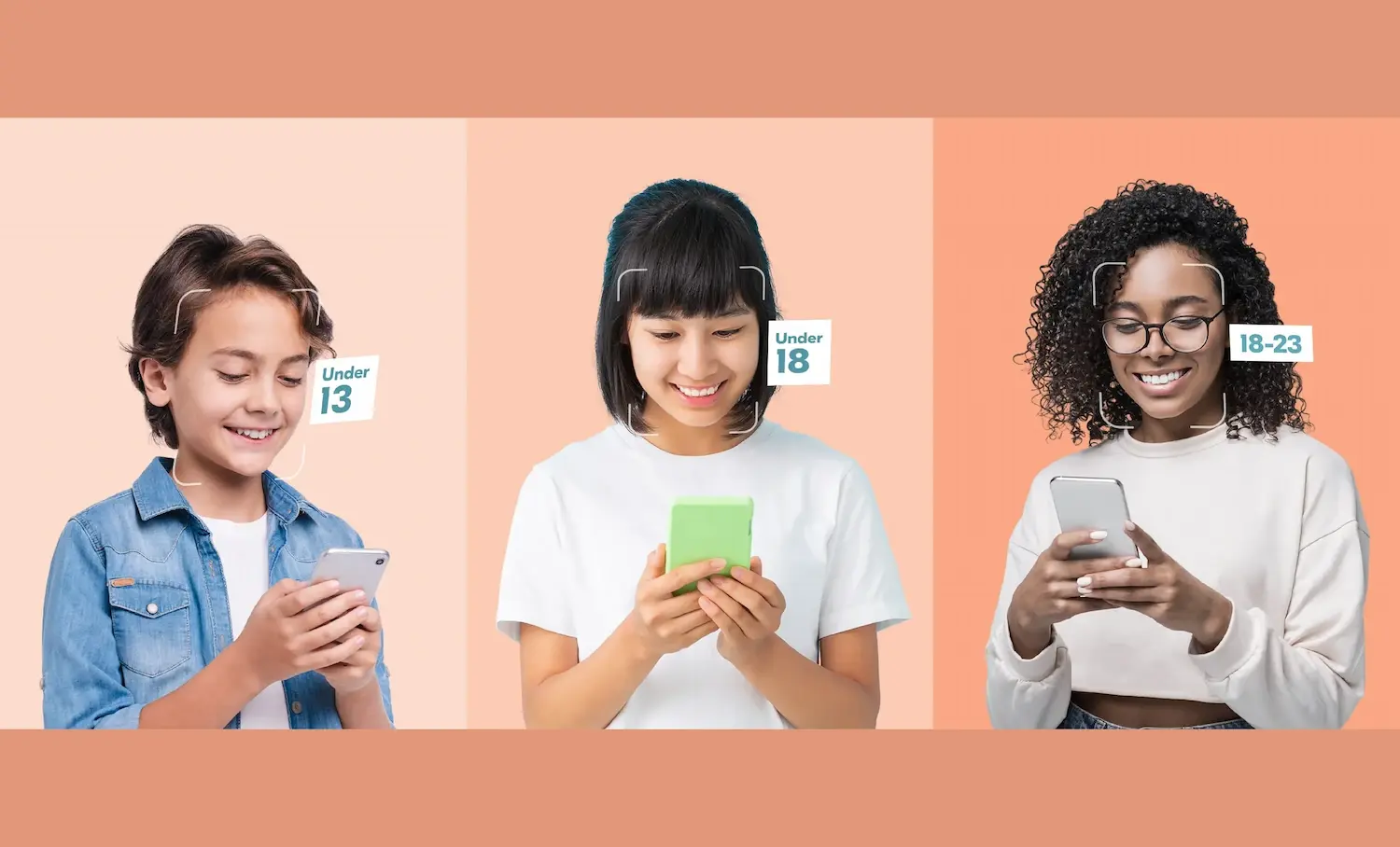Your everyday digital essential: the Yoti Digital ID app
Think of the Yoti Digital ID like a Swiss Army knife – compact, versatile and ready for just about anything. It’s more than just a way to prove who you are; it’s a powerful, multi-use digital identity that fits in your pocket. Whether you’re proving your age, verifying your identity or securely swapping details with another person, the Yoti app brings everything together in one place. It’s a single, secure app packed with features designed to simplify your life, protect your privacy and give you control over your personal information. Key features Privacy-preserving – share only the details
Digital ID for the Online Safety Act: effective, private, reusable
For years, we’ve helped businesses carry out millions of age checks – particularly using our facial age estimation technology, which offers a quick, privacy-preserving way to estimate someone’s age without collecting personal details. But since the UK Online Safety Act came into force on 25th July, we’ve seen growing demand for our Digital ID. More people are choosing it as a secure and privacy-preserving way to prove their age online. In fact, when the Online Safety Act came in, Yoti was the second most popular app in the App Store. Whether it’s to access age-restricted content or platforms, people
Yoti supports platforms as UK’s Online Safety Act comes into force
Today marks a major moment for the internet in the UK: the country’s new Online Safety Act officially comes into force, bringing in a new chapter of accountability for digital platforms and service providers. From social media and gaming, to porn and dating, we’re pleased to be supporting platforms with highly effective, robust and privacy-preserving age assurance solutions. The legislation requires platforms to protect children from harmful or inappropriate content, prevent underage access, and build safer digital environments. Yoti’s age assurance technology is helping platforms to meet these new standards whilst protecting user privacy and anonymity. We’ve also been
Over 6 million UK Digital ID downloads
We’re excited to share that our Digital ID apps have now been downloaded over six million times in the UK! 🎉 A huge thank you to everyone who has chosen one of our Digital ID apps – Yoti ID, Post Office EasyID and Lloyds Bank Smart ID. Whether you’re proving your age or identity, swapping verified details with others, or taking more control over your personal data, our Digital IDs are helping millions of people prove who they are. Privacy-preserving age checks You will probably notice that you’re being asked to prove your age more often online. This
Yoti facial age estimation reaches new accuracy for teenagers, ready for Online Safety Act enforcement
Ahead of the UK’s Online Safety Act, Yoti releases the latest facial age estimation white paper, with improved accuracy rates Yoti enhances teen age accuracy to just 13 months 22nd July 2025, London, UK – Today, Yoti has released the latest facial age estimation white paper, showing improved accuracy for all ages, most notably for young people aged 13-17. This comes just days before the UK’s Online Safety Act comes into force, requiring platforms to introduce highly effective age checks, of which facial age estimation is an approved method. Key takeaways from the white paper: 13-17 year
Age assurance: the facts
Around the world, regulators are introducing online safety and age checking laws to protect minors online. But some people believe that age assurance can’t be done without risking our privacy. In reality, the challenge of checking someone’s age online in a privacy-preserving way has been solved. In this paper, we address some of the common concerns around age assurance. Read the facts






